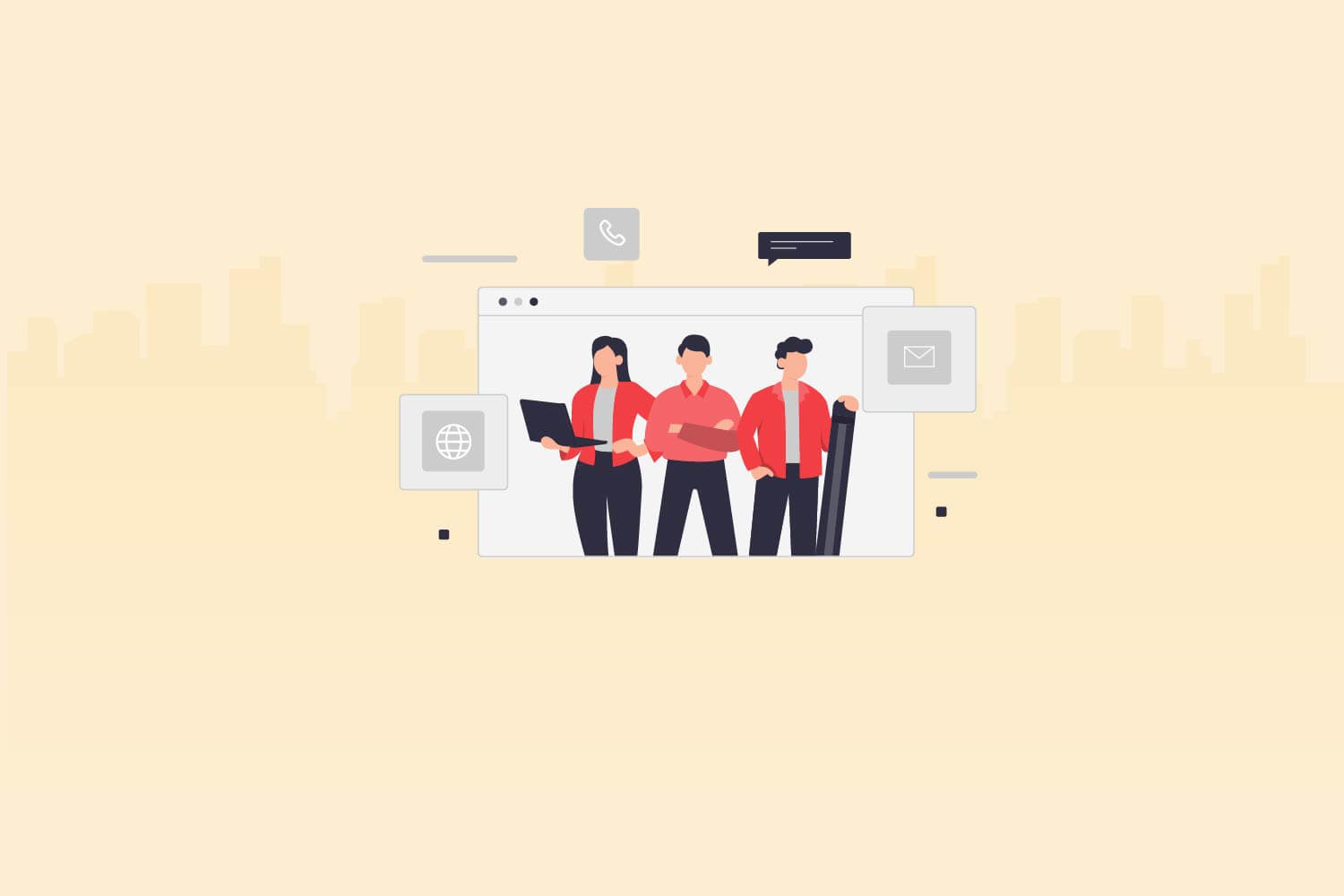The role of Training Specialists has become increasingly vital in today’s dynamic business landscape. As organizations recognize the significance of continuous learning and development, the demand for skilled professionals in this field has been on a steady rise.
According to recent analytics, the recruitment trends for Training Specialists have experienced a notable surge, indicating a growing awareness of the value they bring to an organization’s success. With HR professionals and CXOs seeking to optimize their workforce’s capabilities, Training Specialists play a crucial role in designing and implementing comprehensive training programs. In this competitive environment, understanding the evolving landscape of Training Specialists and their impact on organizational growth is paramount. Therefore, it is imperative for HR professionals and CXOs to stay abreast of the latest trends and best practices in talent development to secure a competitive advantage in today’s fast-paced business world.
Here are the top 60 Training Specialist interview questions to ask job applicants:
15 general interview questions for the Training Specialist
- Can you describe your experience in developing and implementing training programs for different levels of employees?
- How do you assess the training needs of an organization or department?
- Can you provide an example of a training program you designed that resulted in measurable improvements in employee performance or productivity?
- How do you incorporate different learning styles and preferences into your training programs?
- How do you ensure that training initiatives align with the organization’s strategic goals and objectives?
- Can you describe your experience in utilizing e-learning platforms or technologies for training purposes?
- How do you evaluate the effectiveness of training programs and make necessary adjustments for continuous improvement?
- How do you stay updated on the latest trends and best practices in the field of training and development?
- Can you share a time when you faced resistance or challenges in implementing a training program, and how you overcame them?
- How do you ensure that training programs are inclusive and promote diversity and inclusion within the organization?
- Can you provide an example of a successful training initiative that addressed a specific skill gap within an organization?
- How do you collaborate with subject matter experts and stakeholders to develop training content and materials?
- Can you share your experience in delivering training sessions or workshops to large groups or diverse audiences?
- How do you track and measure the return on investment (ROI) of training programs?
- Can you discuss your approach to keeping employees engaged and motivated during training sessions?
5 sample answers to general interview questions for the Training Specialist
- Can you describe your experience in developing and implementing training programs for different levels of employees?
Look for: Look for candidates who demonstrate a strong understanding of training program development and implementation, as well as the ability to tailor programs for different employee levels.
Sample answer: “In my previous role as a Training Specialist, I developed and implemented training programs for employees at various levels within the organization. For entry-level employees, I focused on providing foundational knowledge and skills to help them succeed in their roles. For mid-level managers, I designed programs that emphasized leadership development and strategic thinking. And for senior executives, I developed specialized training sessions to enhance their decision-making abilities and advance their leadership skills.”
- How do you assess the training needs of an organization or department?
Look for: Look for candidates who demonstrate a systematic approach to assessing training needs, including methods such as conducting surveys, analyzing performance data, and consulting with stakeholders.
Sample answer: “When assessing training needs, I employ a multifaceted approach. I conduct thorough interviews with key stakeholders to understand their goals and challenges. Additionally, I analyze performance data and conduct surveys to identify skill gaps and areas for improvement. By combining qualitative and quantitative methods, I ensure a comprehensive understanding of the training needs, which forms the foundation for designing targeted and impactful training programs.”
- Can you describe your experience in utilizing e-learning platforms or technologies for training purposes?
Look for: Look for candidates who are proficient in using e-learning platforms and technologies, and who can effectively integrate them into training programs to enhance engagement and accessibility.
Sample answer: “Throughout my career, I have leveraged various e-learning platforms and technologies to deliver engaging and interactive training experiences. For example, I have used learning management systems (LMS) to create online courses with multimedia content, quizzes, and discussion forums to facilitate knowledge retention and collaboration. I have also utilized virtual reality (VR) simulations to provide realistic training scenarios, particularly in industries where hands-on experience is crucial. By harnessing the power of e-learning technologies, I ensure that training programs are accessible, engaging, and effective.”
- How do you evaluate the effectiveness of training programs and make necessary adjustments for continuous improvement?
Look for: Look for candidates who demonstrate a data-driven and continuous improvement mindset, and who can articulate specific evaluation methods and strategies for enhancing training program effectiveness.
Sample answer: “To evaluate the effectiveness of training programs, I employ a combination of quantitative and qualitative measures. I collect feedback from participants through surveys or interviews to gauge their satisfaction and perceived impact of the training. Additionally, I analyze post-training performance data and metrics to assess whether desired outcomes have been achieved. If adjustments are needed, I seek input from stakeholders and make necessary modifications to improve program content, delivery methods, or assessments. Continuous improvement is a key aspect of my approach, ensuring that training programs evolve to meet the changing needs of the organization.”
- Can you discuss your approach to keeping employees engaged and motivated during training sessions?
Look for: Look for candidates who demonstrate creativity in keeping participants engaged, such as through interactive activities, group discussions, and real-life examples. Look for their ability to create a positive and inclusive learning environment.
Sample answer: “During training sessions, I believe in creating an engaging and interactive learning environment. I incorporate a variety of techniques, such as interactive activities, group discussions, and real-life examples, to keep participants actively involved. I also make sure to tailor the content to the specific needs and interests of the audience. Additionally, I create a safe and inclusive space where participants feel comfortable sharing their thoughts and experiences. By fostering a positive learning environment and promoting active participation, I find that employees are more motivated and enthusiastic about the training, leading to enhanced learning outcomes.”
15 behavioral interview questions for a Training Specialist
- Tell me about a time when you had to design a training program from scratch. How did you approach it and what were the outcomes?
- Describe a situation where you faced resistance from employees or stakeholders during a training initiative. How did you handle it and what was the result?
- Can you share an example of a training program you facilitated that required adapting to diverse learning styles and preferences? How did you ensure inclusivity and engagement?
- Tell me about a time when you had to deliver training to a large group of employees. How did you ensure effective communication and engagement with the participants?
- Describe a challenging training situation you encountered, such as a difficult concept or a complex topic. How did you break it down and make it more understandable for the participants?
- Share a situation where you had to adjust a training program on-the-fly to accommodate unforeseen circumstances or participant feedback. How did you handle the changes and maintain program effectiveness?
- Can you give an example of a training initiative you implemented that resulted in improved employee performance or productivity? What strategies did you use to measure and evaluate its success?
- Describe a time when you had to collaborate with subject matter experts from different departments to develop training content. How did you ensure effective collaboration and achieve the desired outcomes?
- Tell me about a training program you designed that incorporated innovative learning technologies or methodologies. What impact did it have on the participants’ learning experience?
- Share an example of a training session you facilitated where you encountered a participant who was struggling to grasp the concepts? How did you address their needs and ensure their understanding?
- Describe a situation where you had to manage time constraints or limited resources while delivering a training program. How did you ensure the program’s effectiveness within those limitations?
- Can you provide an example of a training initiative you led that aimed to enhance diversity and inclusion within the organization? How did you promote inclusivity during the training sessions?
- Tell me about a time when you received feedback on your training facilitation or program design. How did you incorporate that feedback to improve your future training initiatives?
- Describe a situation where you had to handle a disruptive participant during a training session. How did you manage the situation while ensuring a positive learning environment for others?
- Share an example of a training program you developed that required a blended learning approach, incorporating both in-person and virtual components. How did you ensure seamless integration and engagement for all participants?
5 sample answers to behavioral interview questions for the Training Specialist
- Tell me about a time when you had to design a training program from scratch. How did you approach it and what were the outcomes?
Look for: Look for candidates who demonstrate strong instructional design skills, a systematic approach to program development, and the ability to articulate the positive outcomes of their training program.
Sample answer: “In my previous role, I was tasked with designing a comprehensive training program for new hires in the customer service department. To approach this, I first conducted a needs assessment by interviewing current employees and analyzing customer feedback. Based on the findings, I identified key knowledge and skills gaps. I then developed a structured curriculum, including interactive modules, role-playing exercises, and assessments to measure learning outcomes. The program received positive feedback from participants, who reported feeling more confident in their customer interactions and demonstrated improved customer satisfaction scores within three months of program implementation.”
- Describe a situation where you faced resistance from employees or stakeholders during a training initiative. How did you handle it and what was the result?
Look for: Look for candidates who demonstrate effective communication and influencing skills, the ability to address concerns and objections, and a focus on achieving buy-in and positive outcomes.
Sample answer: “During a training initiative aimed at implementing a new sales process, I encountered resistance from a group of experienced sales representatives who were skeptical about the proposed changes. To address their concerns, I scheduled one-on-one meetings with each representative to understand their perspectives and address their objections. I actively listened to their feedback, acknowledged their expertise, and provided data and real-life examples to illustrate the benefits of the new process. By involving them in the decision-making process and addressing their concerns, I was able to gain their buy-in and participation. As a result, we saw improved sales performance and higher customer satisfaction scores within six months of implementing the new process.”
- Can you share an example of a training program you facilitated that required adapting to diverse learning styles and preferences? How did you ensure inclusivity and engagement?
Look for: Look for candidates who demonstrate knowledge of adult learning principles, creativity in instructional methods, and a commitment to creating an inclusive learning environment.
Sample answer: “In a recent training program, I had a diverse group of participants with varying learning styles and preferences. To ensure inclusivity and engagement, I incorporated a variety of instructional methods. For visual learners, I used visual aids and graphics to support the content. For auditory learners, I incorporated discussions and group activities. For kinesthetic learners, I included hands-on exercises and role-plays. Additionally, I encouraged participants to share their experiences and perspectives, creating an inclusive and collaborative learning environment. By tailoring the training to different learning styles and providing opportunities for active participation, I received positive feedback from participants who reported increased engagement and knowledge retention.”
- Tell me about a training program you developed that incorporated innovative learning technologies or methodologies. What impact did it have on the participants’ learning experience?
Look for: Look for candidates who demonstrate knowledge and experience with incorporating innovative learning technologies, the ability to evaluate their impact, and a focus on enhancing the learning experience.
Sample answer: “In a recent training program, I incorporated gamification elements to enhance the participants’ learning experience. I designed an interactive online course that included quizzes, challenges, and leaderboards to create a sense of competition and engagement. Participants earned points and badges as they progressed through the course, which increased their motivation and excitement. After implementing this innovative approach, we observed higher completion rates and improved knowledge retention among participants. Participant feedback indicated that the gamification elements made the learning experience more enjoyable and helped them apply the newly acquired skills in real-world scenarios.”
- Describe a time when you had to handle a disruptive participant during a training session. How did you manage the situation while ensuring a positive learning environment for others?
Look for: Look for candidates who demonstrate strong facilitation and conflict resolution skills, the ability to address disruptive behavior professionally, and a focus on maintaining a positive learning environment.
Sample answer: “During a training session, I encountered a disruptive participant who frequently interrupted others and challenged the content being presented. To manage the situation, I first addressed the disruptive behavior privately during a break, expressing my concern and reminding the participant of the importance of a respectful learning environment. During the session, I actively listened to their viewpoints, provided clarifications where needed, and encouraged constructive discussions. I ensured that all participants had an opportunity to contribute and that the session remained focused on the learning objectives. By addressing the disruptive behavior promptly and fostering a positive and inclusive environment, I was able to maintain engagement and achieve the training objectives for all participants.”
15 personality interview questions for the Training Specialist
- How would you describe your communication style and how does it contribute to your effectiveness as a Training Specialist?
- How do you handle feedback and criticism from participants or stakeholders during training sessions?
- Can you describe a time when you had to adapt your training approach to accommodate different personalities or learning preferences?
- How do you stay organized and manage multiple training projects or initiatives simultaneously?
- Tell me about a time when you had to work collaboratively with a diverse team of trainers or subject matter experts. How did you contribute to the team’s success?
- Can you share an example of a time when you had to handle a challenging participant or manage a difficult group dynamic during a training session? How did you handle it?
- Describe your approach to creating a positive and inclusive learning environment for participants from diverse backgrounds and experiences.
- How do you motivate and inspire participants to actively engage in the training process and take ownership of their learning?
- Can you discuss a time when you had to quickly adapt your training content or delivery method due to unexpected circumstances or participant feedback?
- How do you demonstrate empathy and understanding when working with individuals who may be struggling with the training material or facing challenges in their roles?
- Tell me about a time when you had to manage conflict or resolve disagreements among participants or within a training group. How did you facilitate a resolution?
- Can you describe a time when you had to think creatively to overcome a training-related obstacle or challenge? What was the outcome?
- How do you handle stress and pressure when faced with tight deadlines or demanding training schedules?
- Can you share an example of a time when you had to influence or persuade stakeholders to invest in a particular training program or initiative? How did you approach it?
- Describe your approach to continuous learning and professional development as a Training Specialist.
5 sample answers to personality interview questions for Training Specialist
- How would you describe your communication style and how does it contribute to your effectiveness as a Training Specialist?
Look for: Look for candidates who can articulate their communication style, such as being clear, concise, and adaptable. Look for examples of how their communication style positively impacts their effectiveness as a Training Specialist.
Sample answer: “As a Training Specialist, I would describe my communication style as clear, concise, and adaptable. I believe in using language that is easily understandable and avoiding jargon or technical terms that may confuse participants. I also focus on active listening and observing non-verbal cues to ensure that the message is effectively conveyed. By adapting my communication style to meet the needs of diverse participants, I can establish rapport, encourage engagement, and facilitate better understanding and retention of the training content.”
- Can you describe a time when you had to adapt your training approach to accommodate different personalities or learning preferences?
Look for: Look for candidates who demonstrate flexibility and adaptability in their training approach, as well as an understanding of different learning styles and the ability to customize their methods accordingly.
Sample answer: “In one of my training sessions, I had participants with different personalities and learning preferences. Some were more visual learners, while others preferred hands-on activities. To accommodate these differences, I incorporated a variety of instructional methods, such as visual aids, interactive exercises, and group discussions. By offering different ways to engage with the material, I ensured that all participants had the opportunity to learn in a way that resonated with them. This approach resulted in increased participation, improved knowledge retention, and positive feedback from the participants.”
- How do you motivate and inspire participants to actively engage in the training process and take ownership of their learning?
Look for: Look for candidates who can demonstrate their ability to inspire and motivate participants, create a positive learning environment, and encourage a sense of ownership and accountability for learning outcomes.
Sample answer: “To motivate and inspire participants, I believe in creating a positive learning environment where individuals feel valued, supported, and encouraged to actively participate. I start by clearly outlining the relevance and benefits of the training content, making it relatable to their roles and goals. During the sessions, I incorporate interactive activities, discussions, and real-life examples to keep participants engaged and invested. I also encourage participants to set personal learning goals and provide them with opportunities for self-reflection and self-assessment. By fostering a sense of ownership and accountability, participants become more proactive in their learning journey and are motivated to apply the knowledge and skills gained from the training.”
- Can you describe a time when you had to think creatively to overcome a training-related obstacle or challenge? What was the outcome?
Look for: Look for candidates who can demonstrate their creative problem-solving skills, resourcefulness, and ability to find innovative solutions to training-related obstacles or challenges.
Sample answer: “During a training program, I encountered a logistical challenge when the training venue unexpectedly became unavailable due to a last-minute issue. To overcome this obstacle, I had to think creatively and quickly find an alternative solution. I arranged for the training to be conducted in a nearby hotel conference room and utilized online collaboration tools to seamlessly integrate virtual participants. By leveraging technology and adapting the delivery method, we successfully conducted the training without any disruption. The participants appreciated our ability to handle the situation smoothly, and the training objectives were achieved as planned.”
- How do you handle feedback and criticism from participants or stakeholders during training sessions?
Look for: Look for candidates who demonstrate professionalism, openness to feedback, and the ability to respond constructively to criticism while maintaining a positive learning environment.
Sample answer: “I view feedback and criticism as valuable opportunities for growth and improvement. When receiving feedback from participants or stakeholders during training sessions, I actively listen to their concerns and perspectives without becoming defensive. I appreciate their insights and use the feedback to reflect on my performance and identify areas for enhancement. I respond to the feedback professionally and openly, seeking clarification if needed and taking proactive steps to address any valid concerns raised. By valuing and incorporating feedback, I continuously strive to improve my training delivery and ensure a positive and impactful learning experience for all participants.”
When should you use skill assessments in your hiring process for Training Specialist?
Skill assessments can be valuable additions to the hiring process for Training Specialists. They provide objective measures of a candidate’s abilities and competencies, helping to ensure that the selected candidate possesses the necessary skills for the role. Assessments offer several benefits, including:
- Objective evaluation
Skill assessments provide an unbiased evaluation of a candidate’s proficiency in specific areas relevant to the Training Specialist role. They remove any potential biases or subjectivity in the assessment process, allowing employers to make more informed decisions based on concrete data.
- Job relevance
Assessments can focus on key skills required for a Training Specialist, such as instructional design, facilitation, needs analysis, or training program development. By tailoring assessments to the specific job requirements, employers can accurately gauge a candidate’s suitability for the role.
Some commonly used assessments for Training Specialists include:
- Instructional design assessments
These assessments evaluate a candidate’s ability to design effective training programs, develop instructional materials, and apply instructional design principles.
- Facilitation assessments
These assessments assess a candidate’s facilitation skills, including their ability to engage participants, lead group discussions, manage activities, and handle challenging situations.
- Technical assessments
These assessments measure a candidate’s proficiency in using training software, learning management systems (LMS), multimedia tools, or other technical skills relevant to the role.
- Problem-solving and critical thinking assessments
These assessments evaluate a candidate’s ability to analyze training needs, identify solutions, and think strategically to address training challenges.
By incorporating skill assessments into the hiring process for Training Specialists, employers can gain deeper insights into a candidate’s capabilities and make more informed decisions regarding their suitability for the role.
Use our interview questions and skill tests to hire talented Training Specialists
Unlock the potential of your hiring process with Testlify’s comprehensive skill assessments and interview questions specifically designed for Training Specialists.
Our extensive test library offers a wide range of assessments, including cognitive function, personality, situational judgment, programming, and more. By leveraging these assessments, you can objectively evaluate candidates’ abilities, ensuring you shortlist the most talented individuals efficiently.
To further enhance your hiring process, we invite you to book a free 30-minute live demo. Our expert team will guide you through the platform, showcasing relevant skill tests tailored to your hiring needs. With our support, you can streamline candidate selection, saving valuable time and resources.
Ready to find the perfect fit for your Training Specialist role? Testlify provides the tools you need to make informed hiring decisions. Explore our skill assessments and interview questions today to uncover exceptional talent for your team.








